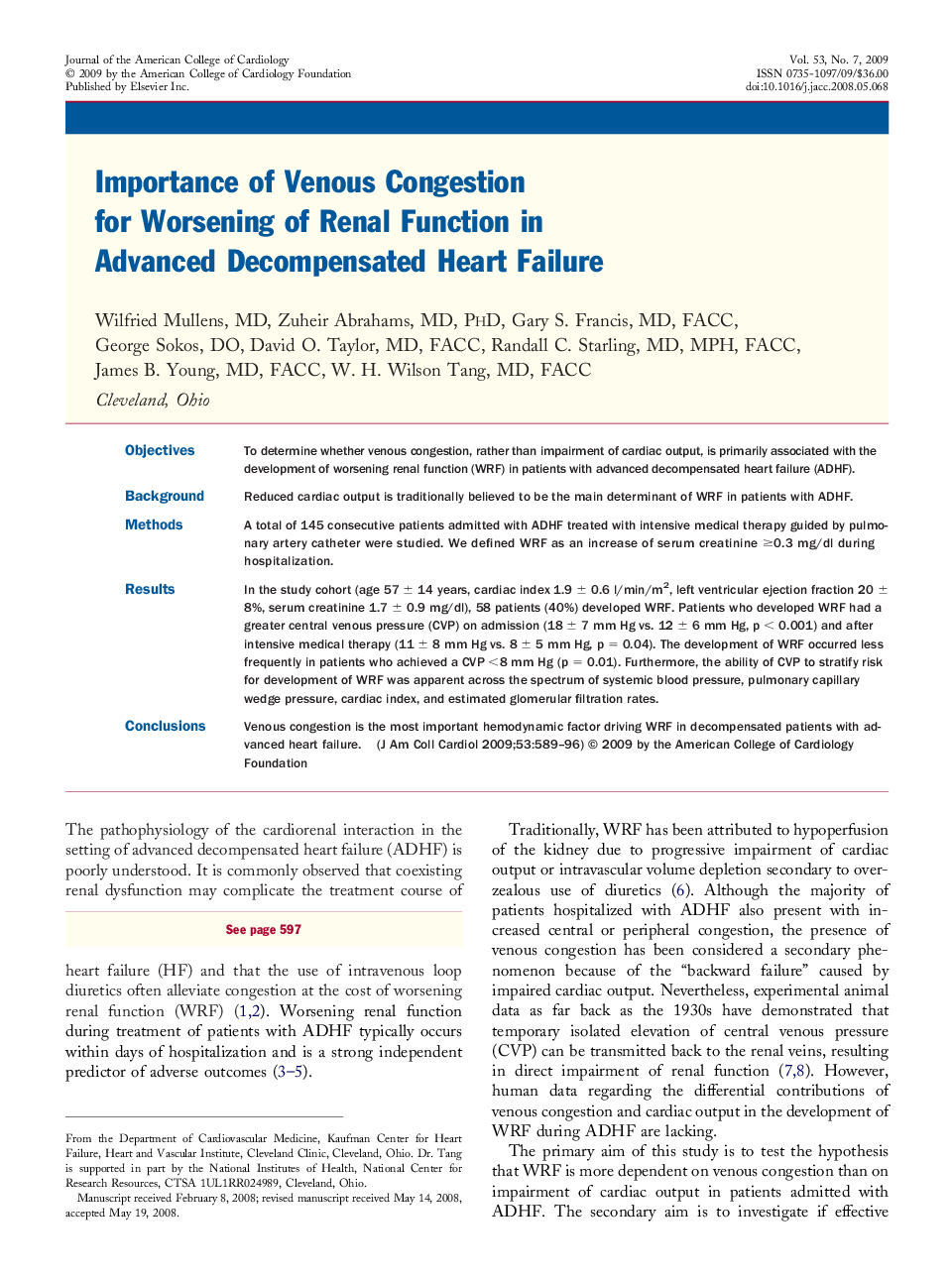| Article ID | Journal | Published Year | Pages | File Type |
|---|---|---|---|---|
| 2951228 | Journal of the American College of Cardiology | 2009 | 8 Pages |
ObjectivesTo determine whether venous congestion, rather than impairment of cardiac output, is primarily associated with the development of worsening renal function (WRF) in patients with advanced decompensated heart failure (ADHF).BackgroundReduced cardiac output is traditionally believed to be the main determinant of WRF in patients with ADHF.MethodsA total of 145 consecutive patients admitted with ADHF treated with intensive medical therapy guided by pulmonary artery catheter were studied. We defined WRF as an increase of serum creatinine ≥0.3 mg/dl during hospitalization.ResultsIn the study cohort (age 57 ± 14 years, cardiac index 1.9 ± 0.6 l/min/m2, left ventricular ejection fraction 20 ± 8%, serum creatinine 1.7 ± 0.9 mg/dl), 58 patients (40%) developed WRF. Patients who developed WRF had a greater central venous pressure (CVP) on admission (18 ± 7 mm Hg vs. 12 ± 6 mm Hg, p < 0.001) and after intensive medical therapy (11 ± 8 mm Hg vs. 8 ± 5 mm Hg, p = 0.04). The development of WRF occurred less frequently in patients who achieved a CVP <8 mm Hg (p = 0.01). Furthermore, the ability of CVP to stratify risk for development of WRF was apparent across the spectrum of systemic blood pressure, pulmonary capillary wedge pressure, cardiac index, and estimated glomerular filtration rates.ConclusionsVenous congestion is the most important hemodynamic factor driving WRF in decompensated patients with advanced heart failure.
